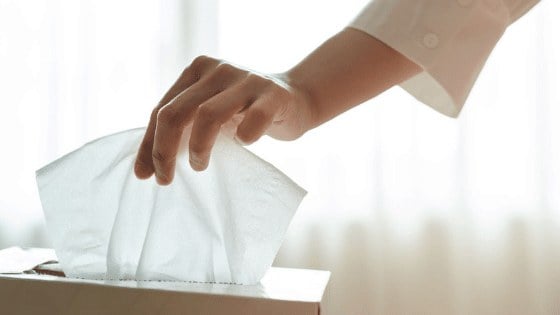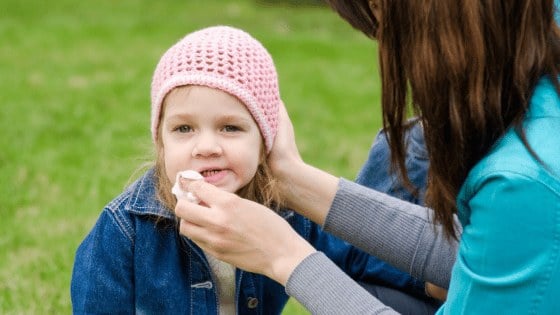
Are Baby Wipes Recyclable? 🧻 What Alternatives You Should Consider
Are Baby Wipes Recyclable? 🧻: You may think that you’re too old to take “baby” steps (pun totally intended), but think again! Fast forward to today, due to COVID-19, we’ve steadily used our supply of wet wipes not just for hygiene, but for our overall health.
Today, we focus our attention on how the humble wet wipe adversely affects not just you, but your communities and wider environment as well.
>Download Now: Free PDF Business Owners Guide To Commingled Recycling Bin Services
More importantly, we will dive into alternative solutions on how to combat increasing number of waste materials in general – and how there can sometimes be easy alternatives. One may call them baby wipes, moist towelettes or wet wipes. Whichever your preferred term, by definition it is a small moistened piece of plastic or cloth that often comes folded and individually wrapped for convenience.
At best, wet wipes can serve a number of personal and household purposes. At worst, it could be problematic for the planet in terms of where they end up eventually. This is like many of the most problematic materials that are combined from various aspects of paper, plastic and other materials. When items are mixed materials, they become much more difficult to recycle.
A bit about Waster
Before we continue our debate on whether or not baby wipes are recyclable, let me share more information about Waster.
We here at Waster provide you with innovative solutions for your and your business’s waste management and recycling needs. Additionally, we provide flexible, 30-day contracts instead of the typical lock-in contracts, which proves to be better.
Click on the blue button to learn more.
READ: Aircraft Demolition And Recycling ✈️
Are wipes bad for health?
Before we debate if baby wipes are indeed recyclable or not, we must first talk about its environmental safety. Can we safely use it?
In addition, wet wipes can be detrimental to human health. Wet wipes contain a mixture of chemicals to enhance their cleaning abilities. These chemicals can be toxic and harmful to those who come in contact with them. See our blog focusing on microbeads.
Furthermore, many wet wipes contain certain fragrances, preservatives and cleaning agents that irritate the skin, causing painful rashes and inflammations.
With the increasing popularity of using wet wipes, inevitably it comes at an environmental cost. The drawback of having to use such is slowly but surely increasing the negative impacts to our environment.
To give you a picture of how dreadful the situation is, baby wipes make up 93 per cent of the materials in the fatbergs clogging up our sewers (as they are commonly flushed down the toilet). Moreover, most wipes contain non-biodegradable plastics such as polyester and other non-biodegradable materials, and could take up too 100 years to break down.
Unless biodegradable alternatives become more widely available, consumers may have to go without wet wipes in future.
We are now in dire need of alternative solutions to hopefully replace our dependency to using non-recyclable and non-biodegradable options.
Are baby wipes recyclable? Where do they end up?
The synthetic fibers that make up wet wipes prevent them from being compostable or recyclable. So, after a single use, they head to the landfill. There, they are out of sight for most, but certainly should not be out of mind. Due to those pesky synthetic fibers, wet wipes do not break down and represent a hefty proportion of non-biodegradable waste in landfills.
Regrettably, our waste doesn’t always make it to the rubbish bin. On-the-go wet wipe users often end up tossing their used wipes into the environment.

Wet wipes that find their way into the oceans can be fatal for marine animals, commonly settling in their stomachs and leading to starvation. It is clear that wet wipes are quickly becoming a leading environmental pollutant. Some wet wipes are advertised as “flushable”. This makes them a convenient toilet paper replacement for those who wish to feel exceedingly squeaky clean.
It turns out, wet wipes do not disintegrate in the same way toilet paper does and can form congealed masses that block drains and clog sewer systems, costing city governments millions of dollars and potentially contaminating our oceans and beaches.
This era’s increasing obsession with convenience seems to come with a significant environmental cost, exemplified by these negative impacts posed by wet wipes.
It’s obvious that we need to move away from convenient disposables and consider reuse. There are many excellent alternatives to wet wipes, including good old-fashioned washcloths.
Alternatives to baby wipes
You might wonder on ways to cleanse your face and body that won’t clog up the sewage system or languish in landfill for a century. Of course, as mentioned above, we cannot use baby wipes due to it being not recyclable.
The use of Muslin cloth may be passe for some but in it’s core an effective alternative for baby wipes. Includes lightweight cloths in a plain weave, usually made of organic cotton. For one, it is reusable and can save you more money as time goes by. Muslin is also durable and versatile and best of all biodegradable.
Another alternative, although they can be more expensive and hard to come by are eco-friendly face wipes. Existing products include compostable and biodegradable variants, not to mention, very affordable options do exist!
Available as well: renewable plant-based options and wipes that are derived from 100% bamboo fiber.
Other alternatives include miccelar and biodegradable cotton pads. They’re more expensive than the ones you’d normally buy at the supermarket or high street pharmacy, but they’re a straightforward way to make your cleansing routine more eco-friendly, if you can afford it.
Lastly, true paper towels are not just a much better option but also a smarter alternative to reduce garbage. This of course will mean we do not have to ask are baby wipes recyclable?
Conclusion: where to start
In today’s seemingly fast paced times, we often find ourselves oblivious to the consequences of our actions. It can come from unconsciously throwing a piece of plastic wrap onto the street to sheer and blatant disregard for our environment by not segregating waste materials if not improper waste management or asking is an item recyclable like “are baby wipes recyclable?”
As stewards of our planet, it is therefore only imperative that we start with simple steps to better the conditions of our surroundings. We should increasing our participation over time through little actions of love that stem from our eagerness to help our environment.

We can start with simple steps as part of our contribution. And, we can do so by doing things from as little as proper segregation of waste materials to as big as organizing city outreach programs focused on reviving the beauty of not just our own, but other communities.
We need to take on the responsibility of protecting our only home: Earth. And may we always be inspired by the famous adage:
“Baby steps count, as long as you’re moving forward”!
Going a step further
Are you a business in need of waste and recycling bin services?
If so, please call 1300 WASTER (1300 927 837). You can also email us at enquiries@waster.com.au if you have any further questions. Find the best deals in terms of waste and recycling pricing and services!
With our flexible 30 day agreements, you can arrange all your waste and recycling services easily online today (and even find out if baby wipes are recyclable at the same time)!
2 Comments
Leave a Reply Cancel reply

Product categories
Most Popular Posts
-
Commercial Waste Management Services: Reduce Waste Collection Costs! 🚍
-
Medical Waste Disposal: Everything You Need To Find Out In 2024! 💉
-
Rubbish Removal Sydney 2024: Better Bin Collections For Business ✅
-
Clinical Waste Disposal 2024: What To Know About Business Clinical Waste ⚕️
-
Secure Document Destruction 2024: All About Security Bins Shredding 🔒
-
Free Cardboard Recycling 2024: Can I Get Free Cardboard Collection? 📦
-
Confidential Paper Disposal Bins 2024: What You Need To Know About Shredding! 🔒
-
Recycling Bins Australia 2024: Recycling Can Boost Your Profits! ♲
-
Commercial Wheelie Bin Collection: What Businesses Need To Know In 2024 🗑️
-
Commingled Recycling 2024: Why Commingled Bin Is Key To Recycling 🍾














A classic convenience vs environment issue it seems.
Baby wipes, unfortunately, are not typically recyclable in the traditional sense due to their composition and the presence of contaminants like baby lotion or cleaning agents. Most baby wipes are made from non-biodegradable materials like polyester or polypropylene, which do not break down easily in recycling processes. However, there is a growing movement towards eco-friendly, biodegradable baby wipes made from sustainable materials that are more environmentally responsible. These wipes are designed to break down naturally, making them a greener choice. It’s essential for parents to look for biodegradable or compostable baby wipes and dispose of them in accordance with local composting guidelines to reduce their environmental impact.